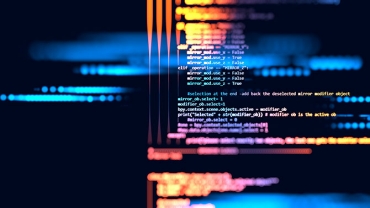
The world is digital. So much of what we rely on to live and work every day - from online services of convenience to the computer-controlled machinery of planes, trains and power grids - can be ultimately reduced down to bits, a bunch of zeroes and ones, coursing through networks that cross the earth and sometimes travel beyond it.
But whilst seemingly everything is converging on the digital, the future of computing may well be defined by another era, not of bits and ones and zeroes but something much stranger. Today our world is digitised. Tomorrow it will be quantised.
The promise of quantum computers is something that has been heralded for decades. It is a history very different to that of the traditional (or “classical”) computer. Many quantum algorithms (software) were known about before we could even conceive of building a quantum computer that uses qubits instead of traditional bits. You have likely heard of some of these, such as Shor’s algorithm which has signaled a threat to much of modern encryption. And while the engineering challenges to build these quantum computers are immense, progress is being made fast, so much so that many have declared 2023 ‘The year of quantum computing’.
Quantum technologies are much broader than just quantum computing. They include a range of applications from quantum sensing, to quantum cryptography, and the quantum ecosystem of hardware and software manufacturers is diverse and vast. These technologies will impact the way we do business, secure our data and help solve some of the most complex problems facing mankind, from the development of new drugs and materials to the acceleration of AI and machine learning. Breakthroughs are being made every day and Australian quantum technologists and academics are punching above their weight in the quantum race.
But quantum is a concept that can be hard to grasp and, while quantum technologies offer much potential, they also present risks that must be managed, especially when it comes to cybersecurity. The aforementioned threats to modern encryption are real, and the National Institute of Standards and Technology (NIST) has developed a suite of quantum-safe (or “post quantum”) cryptographic algorithms that are candidates to protect our most sensitive data in this new quantum age. Threats known as ‘harvest now decrypt later’ attacks will impact organisations and governments with highly sensitive and confidential data. This may sound like a problem for tomorrow - it is very much a risk to start managing now.
With the quantum revolution marching closer, PwC is taking an active role to work with quantum technology companies, industry and government, to ensure the opportunities and risks presented by quantum can be understood and leveraged for a better future. If you’re unsure what quantum means to you or how it may impact your organisation, our team of technology and cyber security experts (including those who have studied physics and quantum applications), are here to help you.
We want Australia to continue to thrive on the quantum world stage. We are ready for the quantum age. Are you?
Contact us













